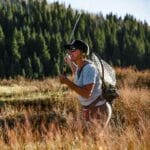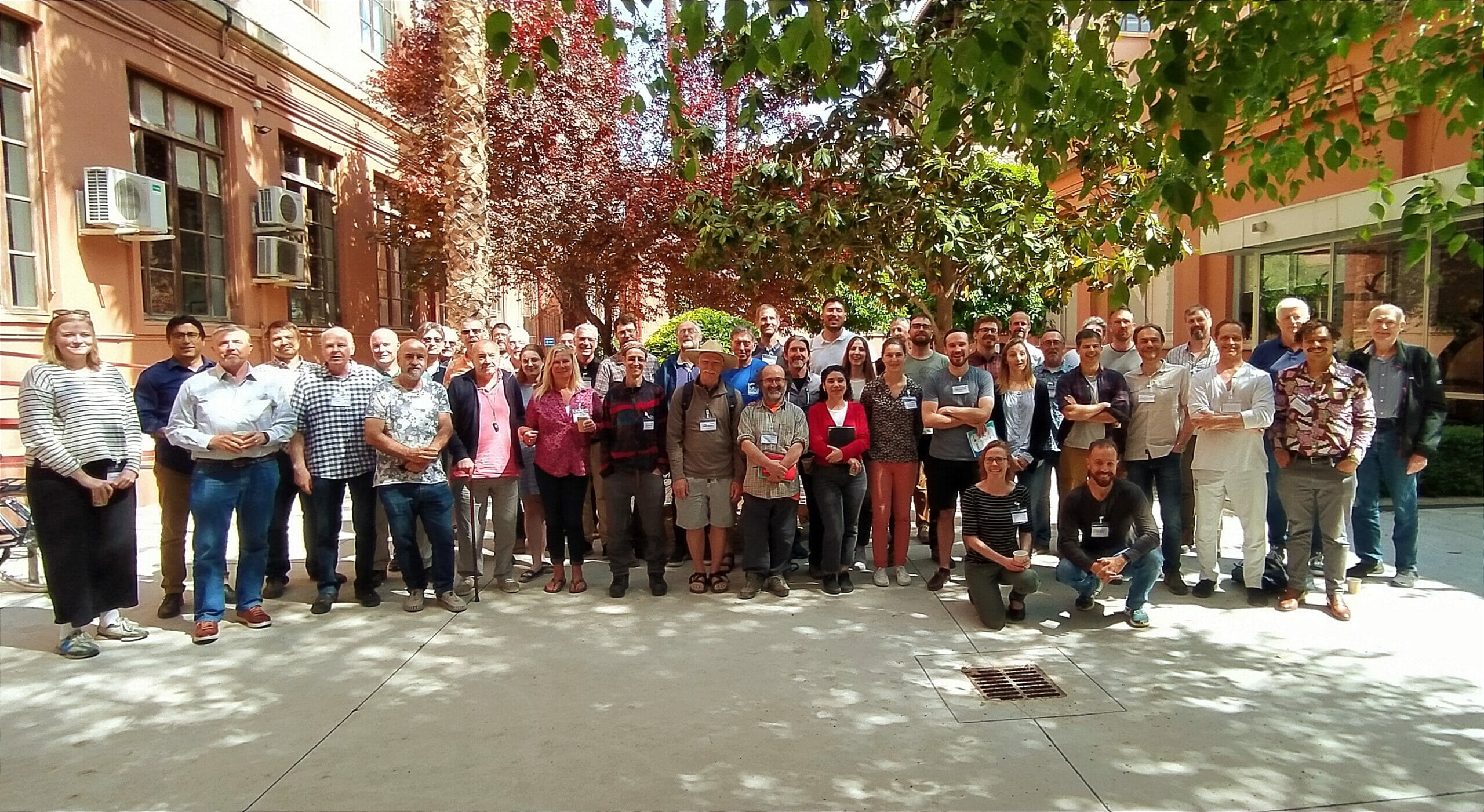Stream Salmonids Symposium offers a venue to highlight TU’s science work and learn from scientists around the globe.
On the banks of the Mediterranean Sea, some 75 salmonid scientists from around the world congregated at the Stream Salmonids Symposium VI in Palma de Mallorca, Spain. The idea was to present their work to colleagues, share ideas, bask in the warm May sun and enjoy the local cuisine.
While this all sounds glorious, Dan Dauwalter, TU’s fisheries science director, flew across the Atlantic on business. He was there to present his Apache Trout species status assessment work. This work was done in collaboration with our agency partners and produced the foundation for the possible delisting from the Endangered Species Act for this special Southwestern trout. Oh, and of course Dan took some family vacation time after the Symposium to enjoy Spain.
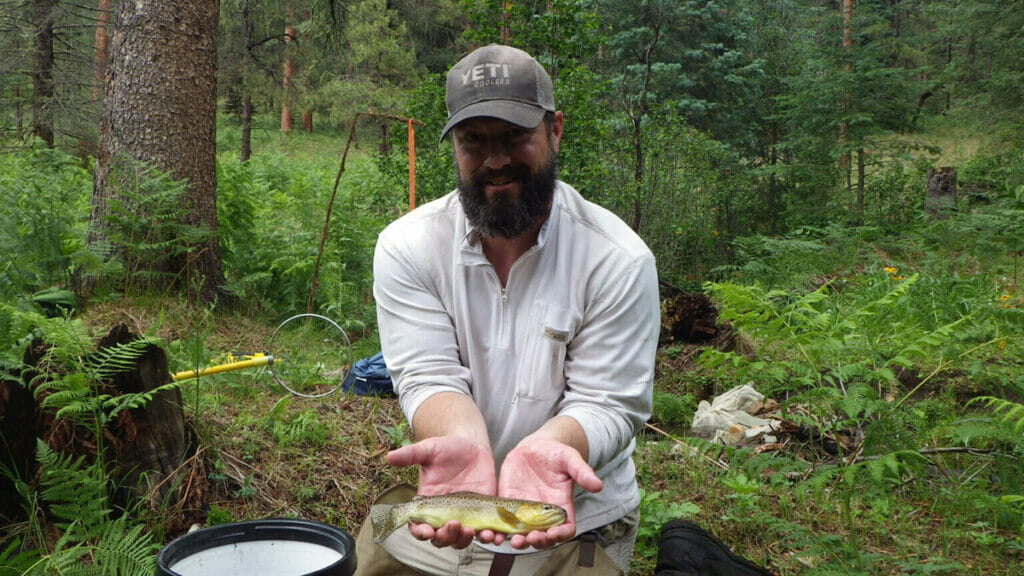
Years of carrying heavy monitoring equipment along remote backcountry streams throughout east-central Arizona along with successful conservation efforts led by the White Mountain Apache Tribe and partner agencies has set the stage for a possible delisting.
Historically occupying over 700 miles of streams, these native trout saw significantly decreased numbers thanks to the introduction of non-natives such as rainbows and browns and reduced access to quality habitat among other factors. But conservation efforts among numerous partners and active monitoring, including the science lead by Dan and TU, brought enough attention to the Apache trout to hopefully see it once again thrive in its home waters.
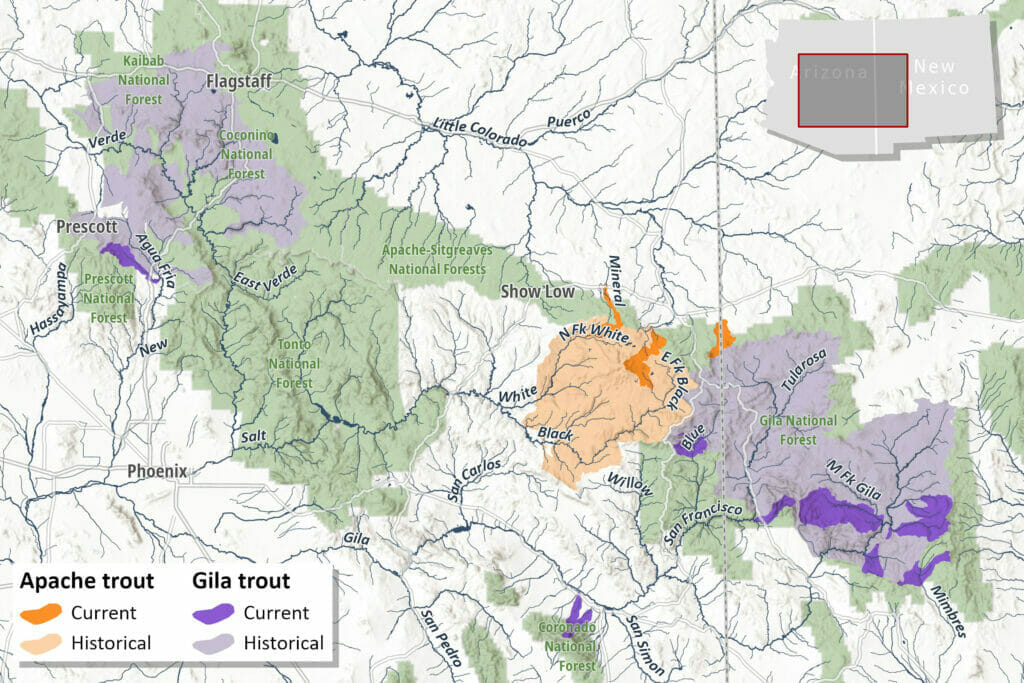
Learnings and sharings in Spain
Back in Spain, Dan presented his methods for monitoring and assessing the status of the Apache trout to great interest. In Austria, a national park is working towards conserving its native brown trout from non-native, introduced rainbows, so portions of TU’s work could be implemented for those efforts.
Ties to climate change were a conjoining thread amongst many of the presentations with the understanding that native trout are more adaptable to deal with the diverse array of conditions sure to impact them in the near future. Numerous other global examples of were presented at the Symposium, which is held every four years somewhere in Spain.
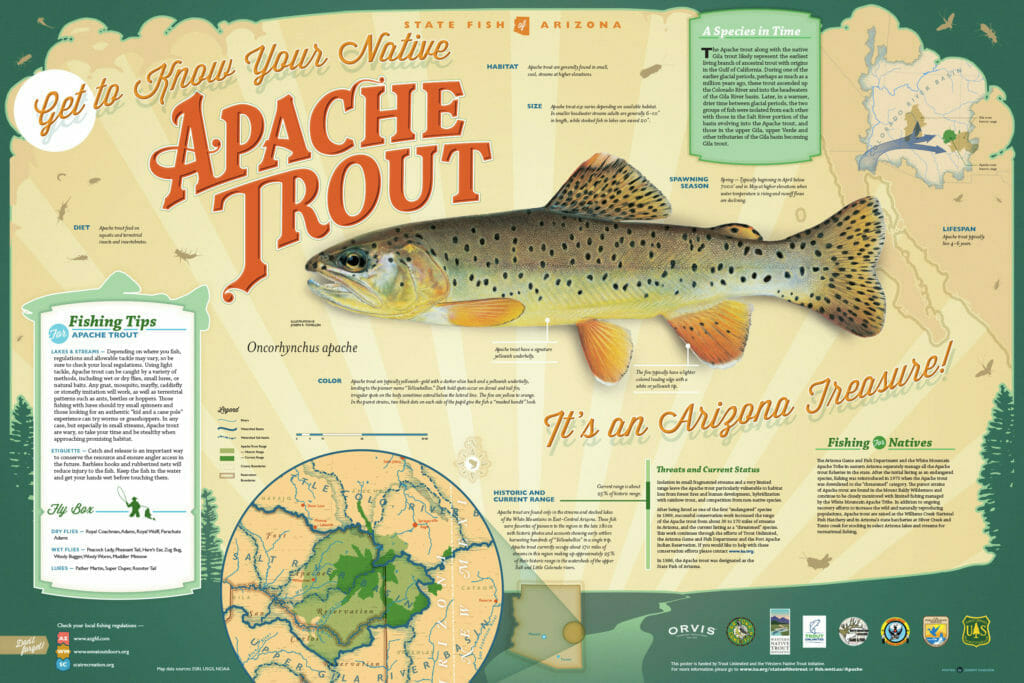
Attending such a conference sounds lovely, but there are benefits. The Trout Unlimited name is recognized the world over, and now its intensive science efforts are better understood. The expertise of Dan and his TU science colleagues is recognized amongst this cohort of trout and salmon experts along with others like the American Fisheries Society.
Our science work helps make fishing better, and attending conferences on magical isles helps disseminate that work all while bringing home fresh ideas to apply to coldwater habitats. It’s tough work, but someone has to do it. Thanks Dan!


